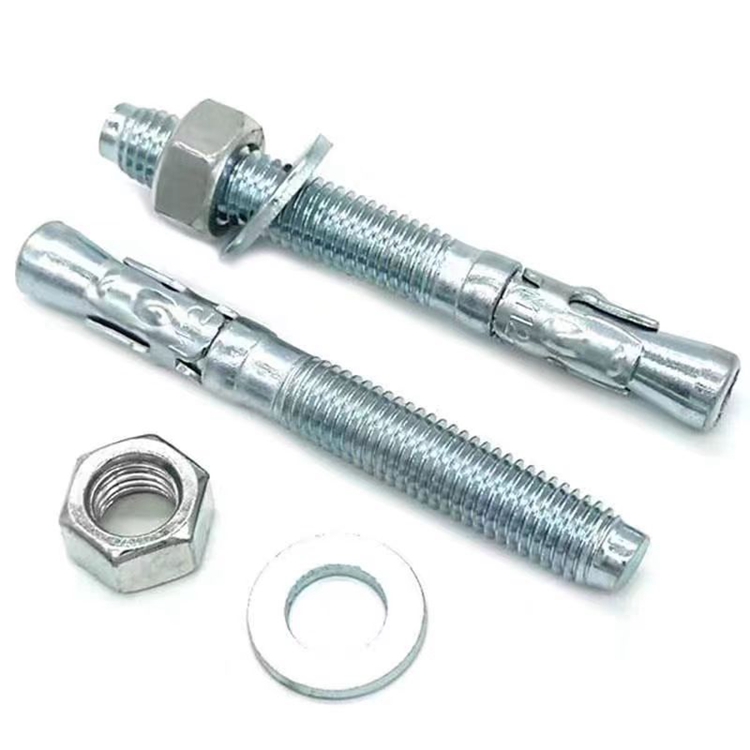Top Durable Long Bolts for Reliable Performance and Strength
Sep . 29, 2024 00:49 Back to list
Top Durable Long Bolts for Reliable Performance and Strength
The Best Long Bolts Ensuring Strength, Stability, and Reliability
When it comes to construction, manufacturing, or DIY projects, the importance of choosing the right fasteners cannot be overstated. Among these fasteners, long bolts hold a special significance due to their versatile applications and strength. Whether you're working on building frameworks, machinery, or furniture, understanding the best long bolts available on the market can make a significant difference in the durability and stability of your projects.
Understanding Long Bolts
Long bolts are defined by their extended length compared to standard bolts, typically exceeding 3 inches. They are often used where additional strength and stability are required, such as in structural applications or to join thick materials. The longer shank of these bolts allows them to reach deeper into materials, providing more grip and a secure connection.
Types of Long Bolts
There are several common types of long bolts, each designed for specific applications
1. Hex Bolts These are the most common type of long bolts, characterized by their hexagonal heads. They are usually used in conjunction with a nut and washer to create a strong, secure connection.
2. Carriage Bolts Known for their rounded heads and square sections below the head, carriage bolts are ideal for applications where the bolt needs to be secured without rotation, such as in wood constructions.
3. Lag Bolts These are heavy-duty screws with a hex head, primarily used in woodworking projects to fasten wood to wood, or wood to masonry. Due to their coarse threads, they provide exceptional holding power.
4. Shoulder Bolts Featuring a cylindrical shoulder below the head, these bolts are ideal for applications requiring axial movement, such as in clamping or pivoting mechanisms.
Material Matters
The choice of material is crucial in selecting long bolts. They come in various materials, each offering different properties that affect their performance and suitability for different environments
best long bolts

- Carbon Steel These bolts provide good tensile strength and are commonly used for general applications. However, they are susceptible to rust and corrosion, so if the bolts will be exposed to moisture, it’s essential to apply a protective coating.
- Stainless Steel Known for their resistance to corrosion, stainless steel long bolts are ideal for outdoor use or environments where exposure to moisture is inevitable. They are slightly more expensive than their carbon steel counterparts but offer superior durability.
- Alloy Steel For high-stress applications, alloy steel bolts are the best choice. They are designed to withstand extreme conditions and loads, making them ideal for heavy machinery and structural applications.
Choosing the Right Long Bolt
When selecting the best long bolt for your project, it’s essential to consider several factors
1. Length and Diameter Match the length and diameter of the bolt to the thickness of the materials being joined. A bolt should extend at least one full thread beyond the nut for effective fastening.
2. Load Requirements Assess the load conditions the bolt will encounter. For heavy loads, opt for high-strength bolts like those made from alloy steel.
3. Environmental Conditions If the project will be exposed to moisture, choose stainless steel bolts or those with corrosion-resistant coatings to prevent degradation over time.
4. Thread Type Choose between coarse or fine threads based on the application. Coarse threads are better for materials like wood, while fine threads can provide better tension in metal applications.
Conclusion
In conclusion, long bolts are indispensable in various engineering and construction contexts due to their strength and reliability. By understanding the types of long bolts available, their materials, and the factors influencing their selection, you can ensure that you choose the best fasteners for your projects. Investing in high-quality long bolts not only strengthens your builds but also enhances their longevity and performance, ensuring that your hard work stands the test of time.
Latest news
-
Reliable Wire Bolts Suppliers | Quality Zinc Plated Fasteners
NewsAug.26,2025
-
Wire Bolts Suppliers: Durable & Reliable Fasteners for Every Project
NewsAug.25,2025
-
Premium Cabinet Bolts Supplier | Wholesale & Custom Solutions
NewsAug.24,2025
-
Reliable Axle Nuts Supplier | Quality & Precision Fasteners
NewsAug.23,2025
-
Durable Bolts for Lawn Mower Handle - Top Supplier & Manufacturer
NewsAug.22,2025
-
High-Quality Bolts for Lawn Mower Handle Supplier & Manufacturer
NewsAug.21,2025
